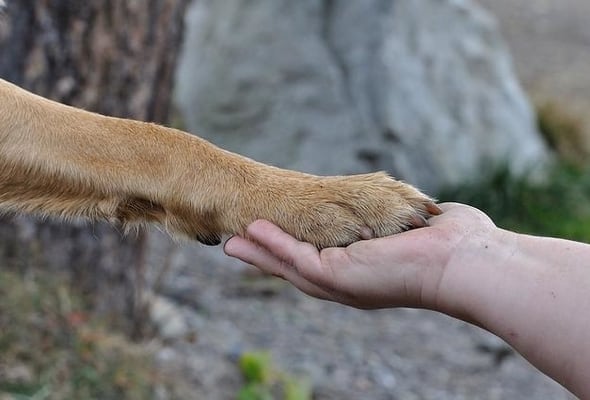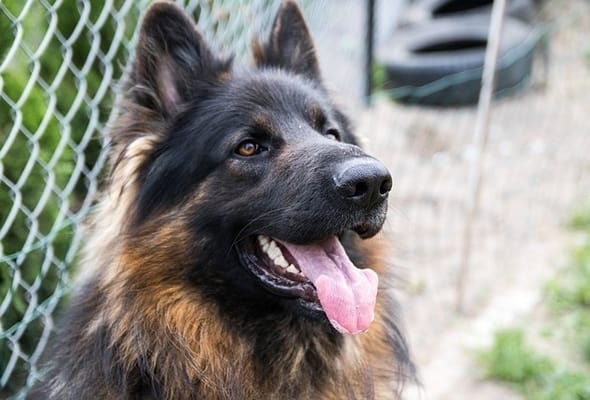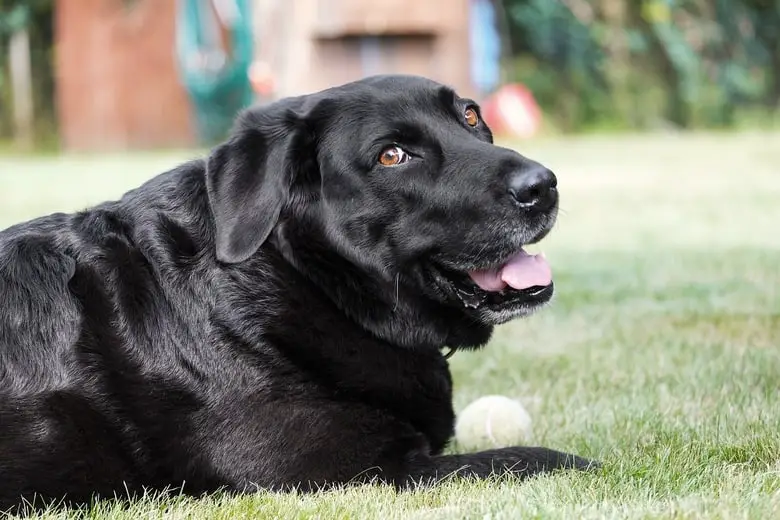What is in a name? Our names are given to us before we even know what they mean, or what words are. They are with us our whole lives and over time we come to know our name to mean us.
We aren’t taught this, but we learn it all the same. What about dogs? Many people have seen their dogs respond to their name being called, they seem to understand that the word we have given them does mean them. But how is this possible? How do dogs know their name?
Humans first started domesticating dogs more than twenty-thousand years ago. And for just as long, humans have been giving dogs names. Naming a dog is just one step in the bonding process between man and man’s best friend.
How Do Dogs Know Their Name?
Dogs know their names because we teach it to them, the same way you were taught your name as a small child. They learn that when you say that name, it means you’re talking specifically to them, not just saying words towards them.
Firstly, it’s important to note that not all dogs do know their name. Some just never learn the difference between their name and any other word you may say to them. It depends on the dog – and it doesn’t matter the breed, as dogs of any breed may learn their name, or not.
Some dogs are better at learning human language, just as some humans might be better at learning a second language or, maybe, better at learning how to speak “dog.” Some dogs are able to learn the meaning of lots of words, not just their name.
They understand what it means when you say “ball” or “walk” and they may even learn to understand full sentences like “go get your ball” or “do you want to go for a walk?”
Many things can help a dog to learn its name or not – body language, tone of voice, eye contact, repetition, and treats are all important in trying to impart meaning to the words you may try to teach your dog – including their name.
But just as a dog is learning how to speak “human,” it can help if you know what your dog is trying to tell you with their body language.
How Do Dogs Communicate?
Dogs are not unlike humans in that they communicate in many ways that are non-verbal. You shake your head to indicate no, nod for yes, shrug for maybe. Dogs likewise have their own forms of communication.

A tilted head, a wagging tail, lips pulled back to reveal snarling teeth, a tongue lolling happily out of its mouth.
All of these things are a dog’s way of communicating something to us. So if we want to be able to tell if a dog knows its name, first we must learn to speak their language. When teaching a dog a new trick – or their name – you may start to notice some of this body language.
The first indicator that a dog recognizes a word you are saying is the tilt of their head or turning to face you. You may notice your dog wagging their tail when they start recognizing new words or even barking when they get excited about what you’re saying.
An easy way to test if your dog truly understands their name or if they are just reacting to your tone of voice is to use the same tone to call them a different name or to use a different tone to say their name.
If they react the same when you say any word in a specific tone of voice, your dog may not know what you are saying. If, however, they seem confused when you say their name in an angry or sad tone, then it’s likely they already have learned that word is the one you say to mean them.
How Do You Teach A Dog Their Name?
If you have just gotten a new puppy, it’s time to give them a name. Dogs don’t inherently understand the meaning of words, so you can name your dog whatever you like.

It can be a word that means something to you or a random object laying around the house or a word you just like the sound of, your dog will like whatever you choose because you chose it for them.
The best way to teach a dog their name is through positive reinforcement training, such as using treats, a positive tone, and physical affection to show them it’s good they are reacting to their name. It’s important that your dog associates their name with positive emotions or feelings, or they may start to resent the word you’ve chosen.
If you try to teach your dog their name by constantly saying “down!” or “no!” or “stop!” in conjunction with the name, they will think that their name is another word to mean “bad dog,” and we don’t want that.
So instead, you want to consistently and cheerfully use your dog’s name to get their attention, give them treats and pets, and work on associating that name with the fact that you are happy to see your dog.
If you adopt an older dog and don’t like the name they’ve already been given, it’s okay to change their name. You do this in the same way you teach a puppy their name: through positive feedback, without any negativity or anger, and constant repetition.
Because dogs don’t know the meaning of the words they are learning, it doesn’t matter to them if you decide you would like to give them a new name, as long as that new name is associated with positive emotions and experiences.
Can Your Dog Know Your Name?
Since we know dogs can learn their own names and even the names of objects like “ball” or “stick,” is it possible for a dog to learn our names as well? The answer is yes! If a dog is able to learn its own name, it can learn yours, too.
Just like you can teach a dog their name through positive reinforcement and repetition. There are several games that you can play to teach your dog your name, like asking them to find you and giving them a treat when they do.
By doing this, your dog won’t just associate positive feelings with their name, but also your own. They will start to feel the same way about your name as they do their favorite activities like “walk” and “fetch.”
Conclusion
A dog’s name is as important to them as yours is to you. It’s the word you chose to mean “that’s my dog” and it’s the word they’ve come to learn to mean “my human is happy to see me.” They understand that it’s theirs and that you gave it to them. They learn their name when you are encouraging and happy to see them and in turn they respond to their name because they are happy to see you as well.

